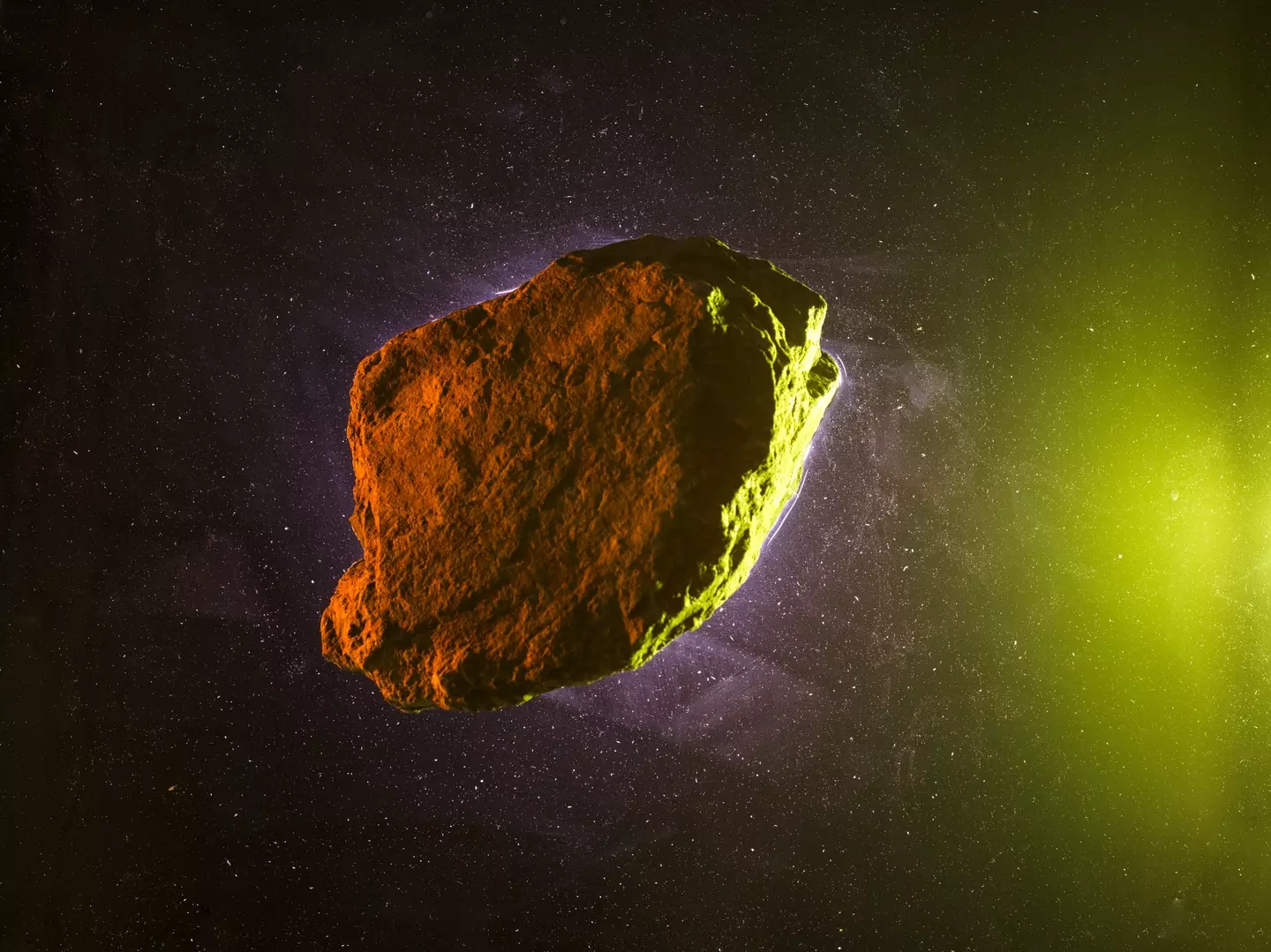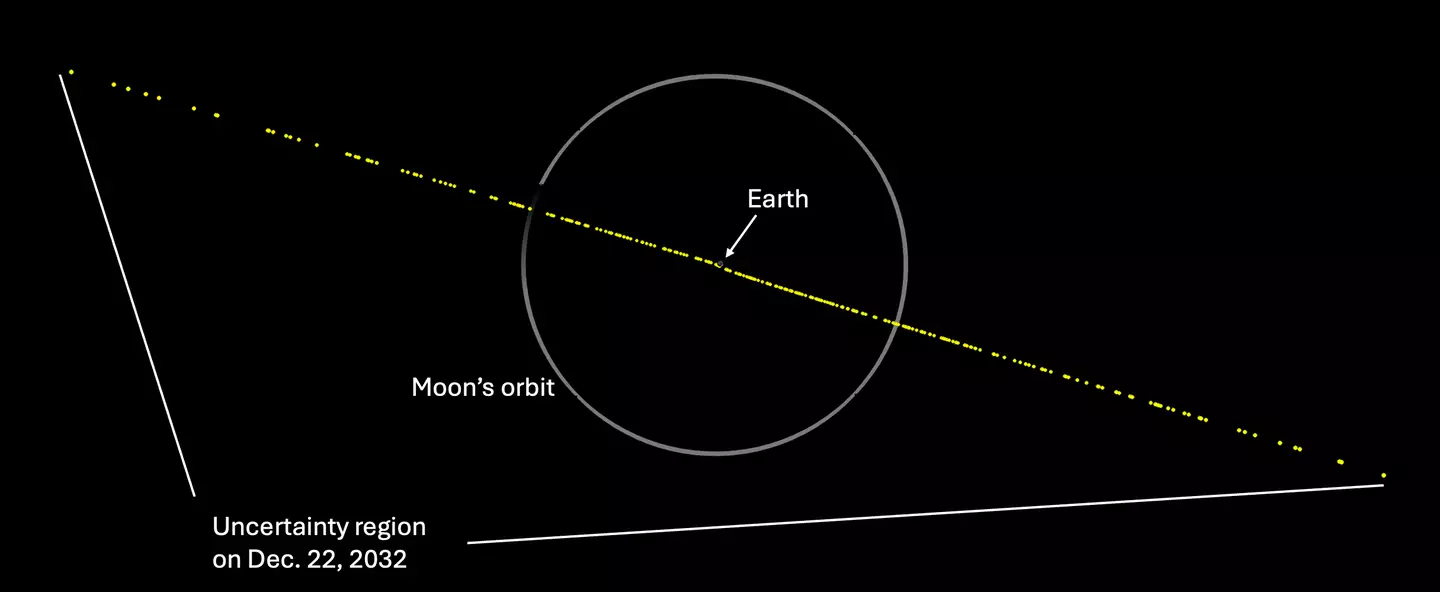
NASA has their eyes on a potentially 'city-destroying' asteroid that could possibly hit Earth in 2032.
The asteroid in question, which is called '2024 YR4' was discovered late last year (27 December) by a telescope in Chile.
Detected from around a whopping 27 million miles away, 2024 YR4 is estimated to be '40 to 100 meters wide', according to the European Space Agency (ESA).
If you want an example, that's big enough to potentially wipe out an entire city, such as Kansas City, Mashable reports.
Advert

Now, while that may sound quite alarming - and understandably so - the discovery isn't something to be massively concerned about.
Paul Chodas, director of NASA's Centre for Near Earth Object Studies, says: "We are not worried at all, because of this 99 percent chance it will miss. But it deserves attention."
Catalina Sky Survey engineer and asteroid hunter, David Rankin, also told Space.com that 'people should absolutely not worry about this yet', adding: "Impact probability is still very low, and the most likely outcome will be a close approaching rock that misses us."
In a press release published last week (31 January), NASA confirmed that the asteroid 'has a more than 1% chance of impacting Earth on Dec. 22, 2032 - which also means there is almost a 99% chance this asteroid will not impact'.
The asteroid's size estimate is based measurements of the asteroid’s brightness.

"The size cannot be further constrained without thermal infrared observations, radar observations, or imagery from a spacecraft that could closely approach the asteroid," the press release adds.
Now, in the 'unlikely event' that 2024 YR4 is on an impact trajectory, the impact would reportedly occur 'somewhere along a risk corridor which extends across the eastern Pacific Ocean, northern South America, the Atlantic Ocean, Africa, the Arabian Sea, and South Asia'.
If the asteroid does, however, end up hitting the Earth in 2032, it would impact at a high velocity, roughly 17 kilometers per second (about 38,000 miles per hour).
As of last Friday (31 January) 2024 YR4 is 48 million km (30 million miles) from Earth and 'moving farther away on its outbound path around the Sun'.
It will continue its orbit around the Sun and will safely return to Earth’s neighbourhood in 2028, NASA states.
The good news, according to NASA, is that no other known large asteroids have an impact probability above one per cent - for now.
Tyla has reached out to NASA for further comment.
Topics: Nasa, News, Science, Space, World News, Technology, US News